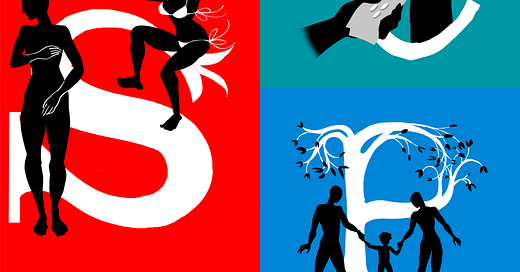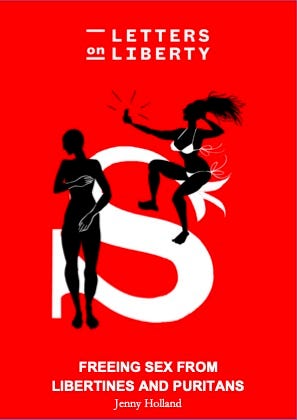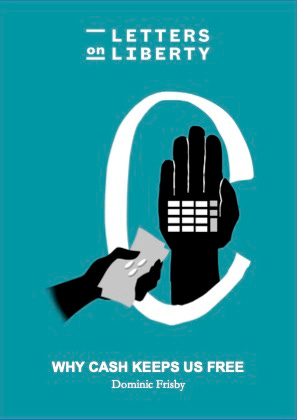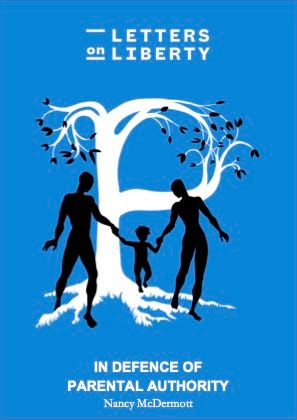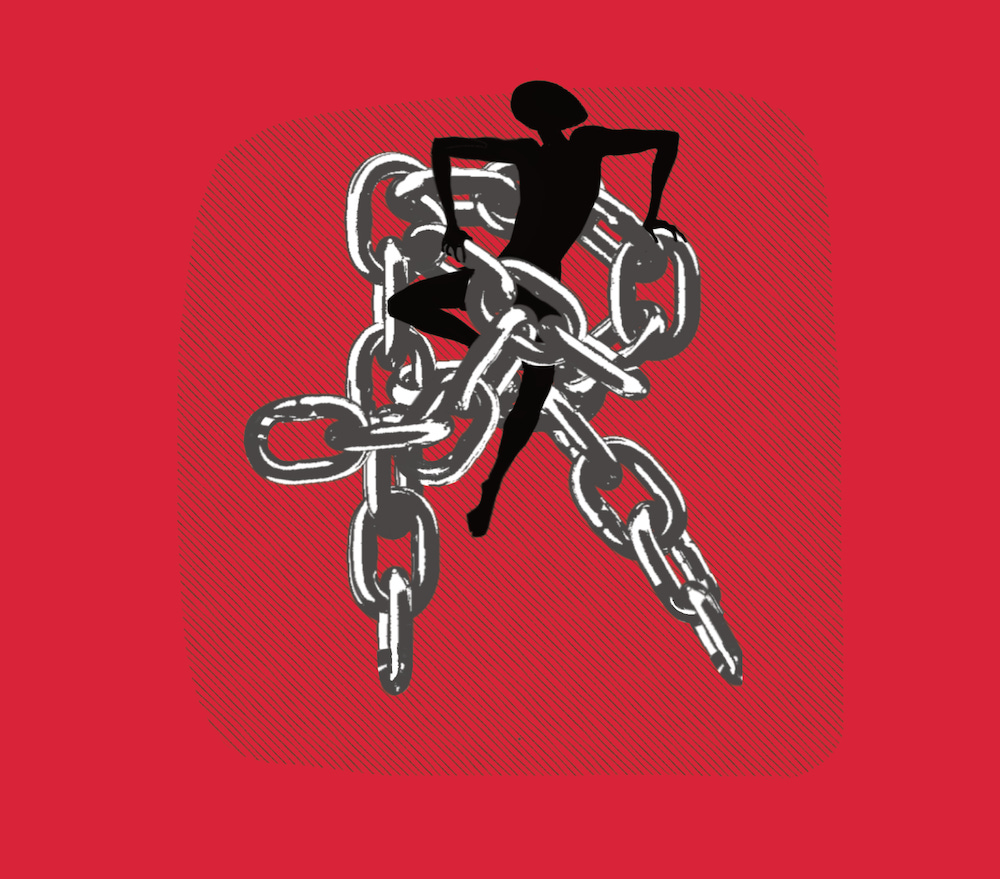Sex, cash and parental authority - check out the latest Letters on Liberty
Our Letters are out now, PLUS our authors will be at the Battle of Ideas festival to discuss their ideas - join the debate.
It should come as a surprise to no one that we at the Academy of Ideas are interested in freedom - freedom of speech, freedom of protest, we’ve long stood up for the f-word in all walks of life. And our pamphlet series - Letters on Liberty - is a testament to our freedom commitment. In the last four years since the pandemic when we began this project, we’ve published explorations into the importance of freedom in relation to all kinds of areas of life - driving, smoking, reading literature, finding intimacy, digital identity, the gender wars and abortion, to name just a few. Public, political life can often feel disheartening, as attacks on our freedom and autonomy seem to be commonplace. Both the Conservatives and the Labour government seem allergic to the concept of trusting the public - something vital for both democracy and freedom to flourish.
It’s with this in mind that we hope our Letters will act as a bulwark against the anti-liberty forces in society. We always intended them to be miniature aids for public debate, small enough to fit in your pocket but with big ideas to blow conversations wide open. Our latest publications - out now - are some of our most exciting. Journalist Jenny Holland’s exploration of sexual norms makes for hair-raising stuff, forcing those of us who took the idea of sexual freedom for granted to think again about how to frame our principles in an age of sexual excesses. Dominic Frisby - who many of you will know as a famous comedian - argues in favour of cold, hard cash, pointing out the dangers of giving up our financial privacy and autonomy without a few notes in our pocket. Spoiler alert: he even ends on a song. And author Nancy McDermott takes a deep dive into Mum, Dad and the importance of parents being in control. Parental authority, she writes, might be most recently under attack through gender ideology in schools, telling kids that they can hide their identities from the ones who love them the most. But - crucially - she argues that the assault on parental freedom is longstanding, and our concept of ‘parenting’ has something to do with the downfall of parental responsibility.
If those essays sound up your street, get your copies of our Letters now - beautifully printed and illustrated by our resident artist Jan Bowman.
You can get all three for just £5.
And if that isn’t exciting enough, Jenny, Dominic and Nancy will be joining panels of speakers and YOU at the Battle of Ideas festival to discuss their ideas and pick apart their essays. Our Letters on Liberty strand returns this year with added extras - we’ll also be holding debates with Alka Sehgal Cuthbert on her Letter The Dangers of the New Anti-Racism, Ken McLaughlin on his Letter Escaping the Straitjacket of Mental Health and Simon Cooke on his Letter In Defence of a New Suburbia.
Join us in just under two weeks for the Battle of Ideas festival.
Get your tickets now:
FREEING SEX FROM LIBERTINES AND PURITANS
By Jenny Holland
In her Letter – Freeing Sex From Libertines and Puritans – journalist and speechwriter Jenny Holland argues that the liberal adjustments of the Sexual Revolution might no longer be fit for purpose. The internet, with its small group of ‘sexual radicals’, regularly exposes the masses to new, desensitising levels of exposure to explicit acts. Meanwhile, she argues, young people are having less sex than ever, and chasms are widening between men and women. Sexual freedom is not without its consequences, Jenny writes, and while excessive promiscuity can be physically and mentally harmful, extreme reactions from modern-day puritans don’t help, either. Instead, Jenny urges us to restore healthy levels of sexual inhibition, freeing the sexual landscape from either extreme.
Join Jenny and respondents to discuss whether modern society has a sex problem. Has our explicit online culture forced us into a sterile social scene, or are people simply redirecting desires that would never have been fulfilled? Could we make material change – should pornography be protected under the banner of free speech, or regulated to prevent real-world harm? What separates the Victorian libertine from the modern sex-positive activist? And with all this adult material floating about, do we all need to grow up?
WHY CASH KEEPS US FREE
By Dominic Frisby
In his Letter – Why Cash Keeps Us Free – author and comedian Dominic Frisby writes in defence of notes and change. In an economy propped up by tracked transactions, you’re always at risk from the whims of financial institutions and governments, he argues, where banks are free to confiscate your funds to save their own heads. The price for free speech becomes more severe when governments are able to identify and cut dissenters out of the financial system. He writes that Big Tech companies are within their rights to keep an eye on what you buy and sell, making a profit on any data they retain. Cash, Dominic argues, is a pro-liberty, pro-privacy solution to the growing problem of authoritarian intervention.
Join Dominic and respondents to discuss the potential pitfalls and triumphs of a cash economy. Does a younger generation simply view cash as outdated, savouring the ease of plastic and online transactions? Does a cash-in-hand focus leave the economy vulnerable to tax evasion? How can those who depend on cash preserve their ability to rent property, or to invest in the stock market? Are cash savings really the best way to protect yourself in the event of a market crash? And is there something cultural to a love of cash – friend of the market-stall trader, scorned by the city slicker?
IN DEFENCE OF PARENTAL AUTHORITY
By Nancy McDermott
In her Letter – In Defence of Parental Authority – author and campaigner Nancy McDermott argues that Western society has started to put the state before the family – and this is a problem. From US pro-trans policies that allow teachers to withhold information from parents, to television shows depicting Mum and Dad as malicious, children are starting to get the message that their family won’t always operate in their best interest. Nancy argues that parents should no longer be undermined. The nuclear family, she writes, forms the bedrock of a healthy society, and has been given a bad rap. She argues that children who trust in the hierarchy of parenthood learn to become responsible citizens of a democratic country. Governments, instead of interfering, should leave parents alone.
Join Nancy and respondents to discuss the status of parents in contemporary society. Is our current ‘therapeutic’ focus on childrearing linked to a growing lack of confidence in parents? How can pro-family ideals filter back into our popular culture while embracing the progressive changes in many social norms – particularly women’s freedom? What happens when a family’s system of morals counteract those of the mainstream – do Mum and Dad know best? And how can we protect children from real abuse while preserving the rights of their families?
Also at the Battle of Ideas festival…
THE DANGERS OF THE NEW ANTI-RACISM
Join Alka Sehgal Cuthbert and respondents as they ask what went wrong with our society’s treatment of race relations? What separates the speeches of Martin Luther King from the modern writing of anti-racist academics? Why did the American BLM resurgence of 2020 have such a visible impact on British institutions? Do schools and workplaces have an obligation to tackle race relations? And are DEI incentives an effective equaliser, or do they contribute to racial division?
ESCAPING THE STRAITJACKET OF MENTAL HEALTH
Join Ken McLaughlin and respondents to ask whether our current approach to mental health risks failing the people who need it most. Is normalising mental health by talking about it as something everyone shares a good thing? Or does the relativisation of mental stresses as mental illness risk trivialising the more serious cases of mental ill health? Do recent examples, like that of Valdo Calocane, point to wider issues in mental healthcare of neglect or under resourcing? And should lovers of liberty come to terms with the fact that, as JS Mill argued, there are times in which it is necessary to remove someone’s freedom?
IN DEFENCE OF A NEW SUBURBIA
Join Simon Cooke and respondents to discuss the future potential of a new suburbia. Does the discussion about housing neglect a consideration for what kind of community people seek when looking for a home? Do the ULEZ or low-traffic neighbourhoods pose a new threat to the car-dependent suburb? Is it better to raise families in the quiet of suburbia, or does the hubbub of the city offer opportunities that are absent further out? And should we overcome our snobbery towards suburbia, if we’re to build decent homes for the millions of people who need them?

